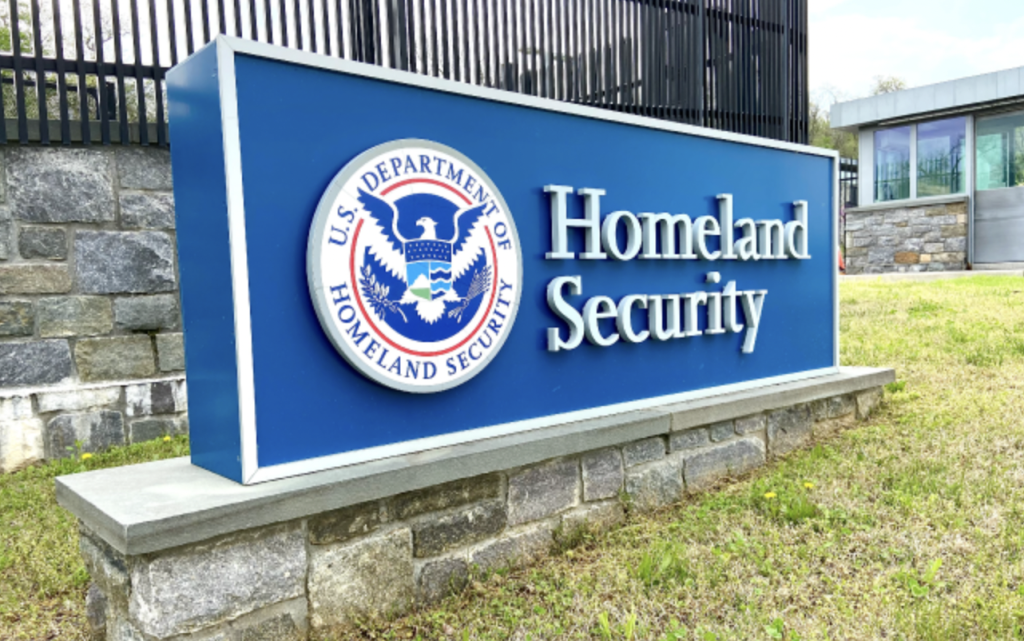Biden administration releases unredacted DHS dossiers on Oregon BLM Protesters
First posted December 19, 2022 10:46am EST
Last updated December 19, 2022 10:46am EST
All Associated Themes:
- Identity
- National Security
- Protest Politics

The U.S. Department of Homeland Security gathered extensive intelligence on Black Lives Matter (BLM) protesters in Portland, Oregon, an internal government report revealed. Redactions in the report, initially made under former President Donald Trump, were removed by President Joe Biden’s administration.
Key Players
The U.S. Department of Homeland Security (DHS), the federal executive department responsible for domestic public security, engages in efforts related to counterterrorism and homeland security threats, border security, immigration and customs, cybersecurity, economic security, and disaster prevention and management.
Sen. Ron Wyden (D-Ore.), a member of the U.S. Senate Select Committee on Intelligence, disclosed the report to the press.
Kenneth Wainstein, the DHS undersecretary for intelligence and analysis, reviewed and released the unredacted report. At the time the report was compiled, Brian Murphy served as the acting undersecretary.
Further Details
In April 2021, DHS officials compiled dossiers, known officially as Operational Background Reports (OBRs), on people who participated in BLM protests in Portland in the summer of 2020, following the murder of George Floyd by former Minneapolis police officer Derek Chauvin, The Associated Press reported.
The Trump administration redacted parts of the report. In October 2022, under the Biden administration, Wainstein reviewed the report and released the original version.
Dossiers included information about the protesters’ families, friends, interests, criminal history, travel history, “derogatory information from DHS or Intelligence Community holdings,” and social media accounts. The 76-page report also revealed that members of the DHS’ Office of Intelligence and Analysis (I&A) had voiced concerns about the legality of collecting such information on the protesters.
Historically, OBRs were only compiled on non-U.S. citizens or U.S. citizens with “a demonstrated terrorism nexus.” But the I&A office made requests for OBRs unrelated to terrorism during the rise of BLM protests, when “civil unrest involved subjects who allegedly committed vehicular assault – vehicle ramming – on law enforcement officers.”
However, information was gathered on protesters who did not commit vehicular assault, including people who were arrested for minor offenses.
Murphy had referred to protesters as “Violent Antifa Anarchists Inspired,” but thirteen out of 43 OBRs were compiled on protesters arrested for nonviolent crimes. Some top DHS officials even attempted to compile dossiers on every participant in the protests, including those who were not arrested. But Murphy limited intel to those who were arrested.
Intelligence Community Directive (ICD) 107 requires national intelligence employees to “protect civil liberties and privacy.” But the I&A office said the collection of information “in the OBRs may have failed to meet the applicable standards in some instances.”
American Civil Liberties Union attorney Ben Wizner told the AP that members of the DHS likely sought to overstate the risk posed by protesters in Portland.
“We have a dark history of intelligence agencies collecting dossiers on protesters,” Wizner said. “We need to be especially careful if agencies that are tasked with intelligence gathering are going to step in to look at protest activity and where Americans are exercising their First Amendment rights.”
In releasing the report to the press, Wyden criticized the DHS. “Political DHS officials spied on Oregonians for exercising their First Amendment right to protest and justified it with baseless conspiracy theories,” Wyden said.
Outcome
DHS surveillance practices criticized, but no legal consequences ensue
No action has been taken against the DHS, but some government agencies acknowledged the surveillance methods as problematic. DHS Inspector General Joseph Cuffari called the surveillance “particularly concerning” because it allowed law enforcement agencies to interfere with peaceful assembly.
“There is no scenario in which it is acceptable or permissible to use DoD (Department of Defense) assets to deter demonstrations and protests, assuming they remain lawful,” the report stated.